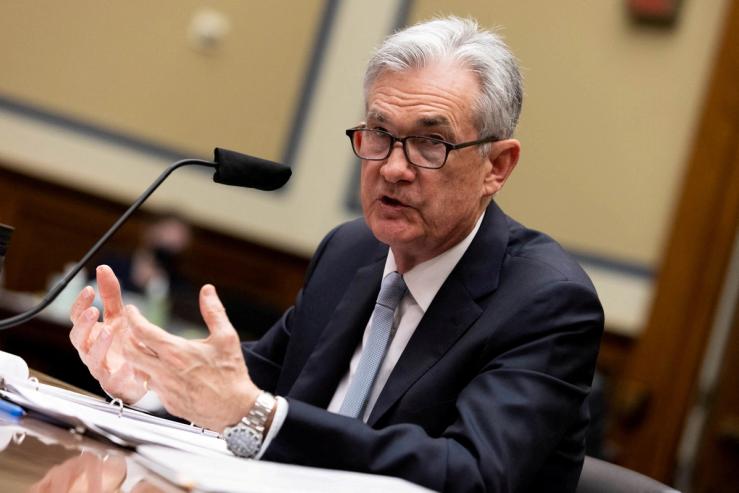Matthew’s view
There is little reason for Federal Reserve officials to cut interest rates. Inflation is still faster than the 2% target, the job market has held up, and tariffs have only just started flowing through to consumer prices.
Yet President Donald Trump is getting increasingly serious about firing Fed Chair Jerome Powell for being “too late” to lower interest rates, which are “at least 3 points too high”. Trump has repeatedly complained that Powell is a “total and complete moron” and claimed on Wednesday that he had the support of Republican lawmakers to axe him. Back in May, the Supreme Court ruled that the president had the right to fire officials at all independent agencies except the Fed, citing its “distinct historical tradition.” Whether that makes sense or not, it helps explain why Trump, along with some Republican senators and assorted White House officials, has recently pivoted to criticizing Powell over supposed cost overruns associated with the Fed’s long-planned building renovations. (Somewhat surprisingly, this critique seems to have started with a paper by Andrew Levin, a former advisor to Powell’s predecessor, Janet Yellen.) Firing “for cause” might be an easier case to win in the courts.
What might happen, should Trump succeed in suborning the central bank? There are some unpleasant precedents.
First, consider the case of Richard Nixon and his Fed Chairman, Arthur Burns. At the end of 1969, after he was nominated, but before he took office, Burns was told by Nixon that his predecessor “was always six months too late doing anything.” (Sound familiar?) Prices had consistently been rising about 5% a year since 1968 thanks to the wars on poverty and Vietnam, but Burns was not deemed pliable enough, so by 1971, Nixon was discreetly encouraging, without success, his “Commission on Financial Structure and Regulation” to revisit the question of Fed independence. He preferred controlling inflation with wage and price controls, which failed.
Nixon had more luck pressuring Burns to goose the economy by coming to Burns’ defense after secretly planting a (fake) story that the Fed chairman was gunning for a 50% pay increase. Nixon was far subtler than Trump, which helps explain how he got his way. By September 1973 — just before the Arab oil embargo that many falsely blame for kicking off the inflation of the 1970s — US consumer prices were rising at a yearly rate of more than 8%. By the end of 1978, the eve of the second oil shock, US inflation was rising by 10%. It took punishingly high interest rates and a savage downturn in the early 1980s to convince Americans that inflation would not come back.
Perhaps more relevant for Trump is the case of Türkiye. President Erdoğan spent years railing against “the interest rate lobby,” stuffed the central bank with lackeys, and said that anything other than low interest rates was “treason against the nation.” After finally getting his way, Türkiye suffered a plunge in the currency and a financial crisis in 2018. Things only got worse after the pandemic, with triple-digit inflation thanks to central bank money-printing. Turkish savers revolted against the lira, with nearly 70% of bank deposits denominated in or indexed to foreign currencies by the peak in 2022-2023. By the end of 2023, Erdoğan had capitulated and endorsed a return to orthodoxy. But while that mostly worked, Turks still have to deal with inflation far higher than before (about 40% a year as of June), a vastly depreciated currency (one US dollar buys about 40 lira, compared to just 3 lira in 2016), and extraordinarily steep interest rates.
Trump may not end up firing Powell, and even if he does, he may still fail to bend the Fed to his wishes. But Americans and foreign investors alike should be extremely worried if Trump gets his way.
In this article:
Room for Disagreement
“History tells us that the independent operations in the conduct of monetary policy is essential,” Kevin Warsh, a potential pick to replace Powell, told CNBC today. “But that doesn’t mean the Fed is independent in everything else it does,” he said, adding that Powell had strayed into areas where the Fed lacks authority.
Notable
- Trump’s attacks on Powell could put the US’ financial stability at risk by making it even harder to deliver low interest rates, the Bloomberg editorial board argues in an op-ed.
- “Playing around with the Fed can often have adverse consequences — the absolute opposite of what you might be hoping for,” JPMorgan CEO Jamie Dimon told reporters this week.


